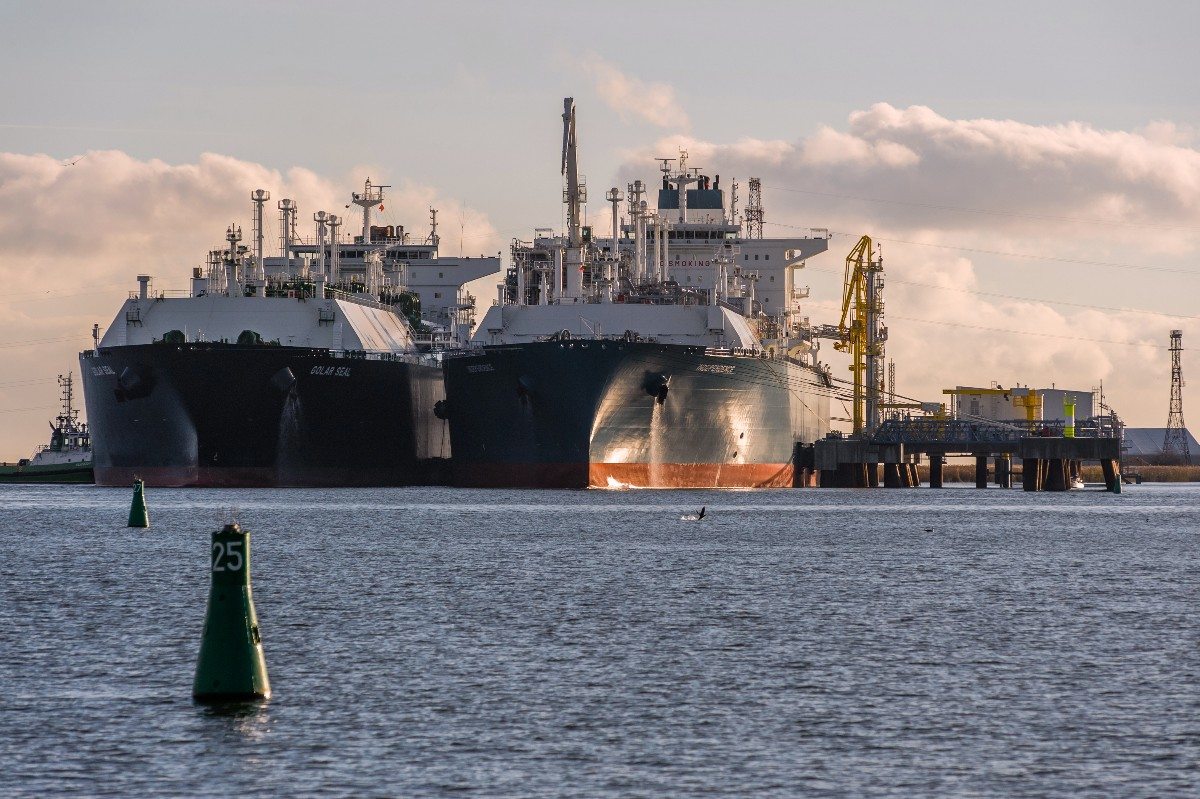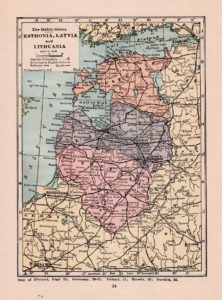 Courtesy Klaipėdos nafta
Courtesy Klaipėdos nafta
The Baltic States Celebrate 100 Years Since Independence by Building Energy Security

The Baltic States in 1923
As the Baltic states celebrate the 100th anniversary of their independence with a visit to the United States, large ships full of supercooled hydrocarbons steam into Lithuania’s port of Klaipėda, helping to affirm that the small countries, nearly surrounded by either the Baltic Sea or an increasingly hostile Russian state, will remain independent of their overbearing neighbor.
Of course, the three Baltic states of Lithuania, Latvia, and Estonia haven’t been independent for all those hundred years; they were ultimately annexed by the Soviet Union during the Second World War. It has only been over the last 30 years that political independence of the three countries has been built. The achievement of this independence is an ongoing process which requires a constant effort.
They were the first Republics to break away from the USSR, reflecting their orientation toward Europe, their shorter time under Communist rule, and their cultural and political separation from Russia. In this most recent term of independence, they have been doing everything they can to ensure that this time, independence is more permanent than the 22 years of independence secured during the interwar years.
They are the only parts of the former Soviet Union to join both NATO and the European Union. As such, they benefit from NATO’s Article V guarantee that an attack on one allied state is an attack on all. Such a guarantee is important, but recent studies agree that a sustained defense of the Baltic states against a determined Russian attack is impossible. We suspect that those in the Baltic states know that, but nevertheless feel better than the leaders of Georgia or Ukraine, two other former Soviet Republics that dallied with NATO, only to be invaded by Russian forces.
Because of the tenuous nature of their political independence, it is important for these countries to demonstrate their independence from their Russian neighbor in other ways, and to integrate further with the EU and the West. In the last decade, Russia, and the long arm of Gazprom, had worked to keep Eastern Europe dependent on Russian natural gas so that Russia could use gas as a tool of geopolitics. Today, thanks to smart investments in natural gas infrastructure, the Baltic states are poised to be more secure in their independence than ever before. Lithuania’s new Floating Storage and Regasification Unit, which opened in Klaipėda in 2014, allows gas to come from Norway, Qatar, and even the United States, to compete with Russian gas. In Washington, Lithuanian President Dalia Grybauskaite signed a deal to increase the country’s imports of U.S. natural gas, but the economics of proximity mean that the bulk of imported gas will continue to come from Norway.
Both electricity and natural gas interconnections are either being upgraded or new ones put in place as part of an EU Baltic Energy Market Interconnection Plan. The three Baltic states are a part of a joint electricity grid with Russian and Belarus, but their dependence on Russian electricity is declining. Lithuania utilizes predominantly gas for electricity production, ever since it decommissioned its Soviet-era nuclear power plant in 2009. Latvia is fortunate to have three large hydroelectric plants to power its country. Estonia utilizes domestic shale oil reserves for power, but has an achievable plan to deliver half of its electricity and 80% of its heat from renewable resources by 2030; in 2017, 17% of its electricity came from renewable energy. Together, the Baltic states are building interconnectors that will allow gas and electricity to flow more smoothly between the three states, and to the broader EU through Poland or Finland.
For the three Baltic states, energy independence comes, as it always does, in the form of diversity. They are able to supply their energy from a diversity of countries, and in a diversity of ways. The American Security Project is a founding member of the LNG Allies consortium that has advocated for increased exports of US gas to Eastern European allies. I wrote, with ASP’s CEO Stephen Cheney, in the Wall Street Journal that US LNG Exports provide the opportunity to break Russia’s Energy Dominance in Eastern Europe. The Baltic states show how to use energy to build independence, even in the face of strong opposition. They deserve the support of the EU and the US in their efforts to build that energy security. Because of their efforts, Russia’s Gazprom no longer has the teeth it once did in the region.





